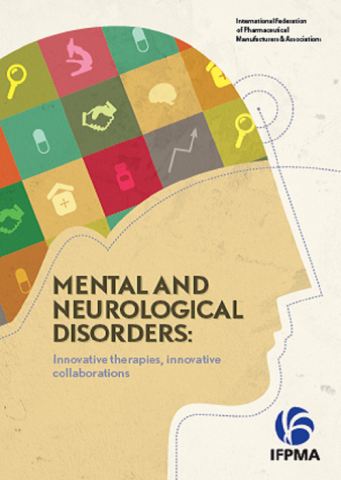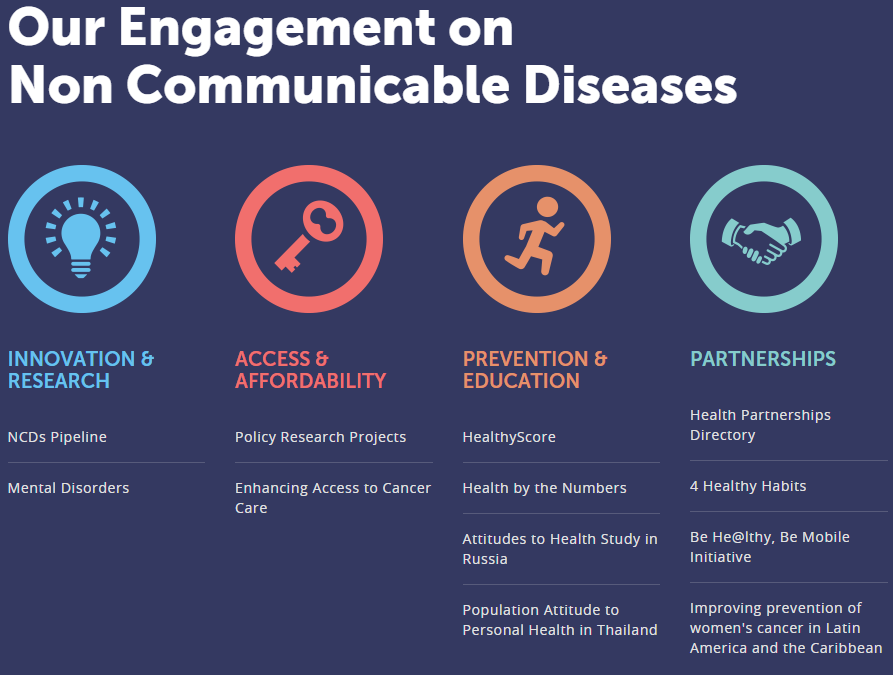
Tackling
Global health challenges
Mental and neurological disorders
Mental and Neurological Disorders
Over the past 50 years, pharmaceutical innovation has contributed to transforming mental and neurological disorders (MNDs) from highly-stigmatized and poorly-understood diseases into treatable and often curable conditions.
Reducing the burden of mental and neurological disorders relies on both timely diagnosis and the treatment of disorders by health professionals through pharmacological and psychosocial interventions. Furthermore, successful screening relies on reducing stigma and better integrating health services.



The World Health Organization (WHO) estimates that 700 million cases of mental and neurological disorders (MNDs) are reported annually—accounting for 13% of global disease burden. Out of this number, 150 million people live with depression, 25 million live with schizophrenia, 38 million live with epilepsy, and 90 million live with a substance abuse disorder. A number of factors are responsible for increasing the disease burden: insufficient focus on basic mental health care, lack of funding of prevention programs, and the stigma associated with these disorders. The costs to society in terms of worker disability call for urgent action and coordinated efforts from all health partners to reverse current trends.
The brain is a uniquely complex organ and research in this area is very difficult, expensive, and time-consuming. Developing new medicines for MNDs and bringing them to market takes longer and is more expensive than developing medicines for other serious disorders.
However, advances in genetics and genomics offer promise of new approaches to R&D that capitalize on the potential of state-of-the-art diagnostics and personalized medicine. This requires an enormous collaborative research effort. There are more than 300 new medicines in the pipeline but, given the complexity of these diseases, it is likely many of these will not reach patients. Policymakers can play a key role in supporting new therapies by incentivizing brain research and medicine development.
Addressing MNDs requires innovative policies and leveraging the efforts of our industry, governments, patient organizations, the WHO and other stakeholders in partnership. Developing robust mental health systems and embedding MND services into primary care can improve access and outcomes. The impact of MNDs on individuals and societies calls for inter-sectoral cooperation of government ministries. Push and pull mechanisms, including product development partnerships (PDPs), advanced market commitments, and grants to incentivize research are innovative ways of going forward.
More than 700 million cases of MNDs are reported each year worldwide, causing human suffering and substantial social, employment, and economic challenges for policymakers. Forecasts indicate that the burden of MNDs will increase in the years ahead, yet the proportion of health spending devoted to MNDs remains relatively low.
Mental disorders
account for 13% of the global burden of disease
30% of the total burden
of non-communicable diseases is due to mental and neurological disorders
1 in 5 people of working age
is currently suffering from a mental disorder










